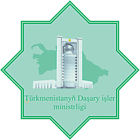of Peace and Trust»




Minister of Foreign Affairs of Japan Mr. Taro Kono
First of all, I express great pleasure that I can set foot on land of Central Asia for the first time after taking the office of the Minister of Foreign Affairs. Today I take part in the 7th Session of the Foreign Ministers in the framework of the dialog “Central Asia + Japan” in Dushanbe and looking forward to discussions with the issues of the future cooperation at this platform.
Since the moment the Central Asian states obtained independence, our country continuously has been developing “History of cooperation” with the countries of the region; in 2015 there was a historical visit of the Prime Minister Abe to five countries of the region; in 2017 we marked one of the important milestones of history – 25th anniversary of the establishment of the diplomatic relations. Subsequently, there were numerous visits of high ranking officials to Turkmenistan. A number of projects aimed at processing of energy resources that Turkmenistan has plenty and at increasing the added value, are successfully developing in cooperation with Japan.
At that time when relations of Japan with countries of Central Asia are getting stronger, I am willing to underscore again during today’s session that approach of Japan’s diplomacy towards the given region lies in maintenance of “open, sustainable and self-sustained development” of this region and implementation of the work together with all states as “catalyst of regional cooperation.”
The Government of Japan supports the idea on enhancing connectivity in the region and as it believes it will be beneficial in achieving more open development of land-locked Central Asia as for external world. In the ancient capital of our country there is a treasury where musical instruments, clothes, swords, dish and other staff brought in VII century from the Central Asia are stored. It means that it is impossible to tell Japan’s history without mentioning the cultures and knowledge that intercrossed on the Great Silk Road. We hope that Central Asia region in XXI century will become a new corridor to Eurasia that connects the region with Europe in the West through Caspian Sea and Caucasus, with Asia in the East, with Indian Ocean in the South and will keep developing.
Our country is willing to cooperation with its partners for the purpose of creating high quality infrastructure in accordance with the international standards like openness, transparency, economic efficiency and financial stability of the target country. Meanwhile, special importance is attached to development of human resources able to employ and manage it, and this direction is also included in the projects in the framework of the dialog “Central Asia + Japan”.
Stability and security in Central Asia, which has a long border with Afghanistan is a vital factor for peace and stability of entire international community. Japan was promoting and will keep promoting assistance to each country of the region in the field of border control, counteracting drug trafficking, terrorism and forcible extremism and stabilization of situation in Afghanistan.
Cooperation within “Central Asia + Japan” dialog is developing in the field of agriculture also which is directly connected with human lives. It is targeted to make every country of the region to enjoy its riches of national development without their excessive dependence on any state.
Along with this, new ground corridor in Eurasia has potential that contributes to self-sufficient development of the region. This is also enormous potential in tourism. It would be fruitful, if Central Asian countries apply joint efforts, for instance, in creation of attractive tourist routes through several countries of the region. In addition, promotion of mutual understanding by means of tourism has huge importance for reinforcing peace and friendship in the region. Discussions of the ways for cooperation in practice in this field are proposed at today’s session of the Foreign Ministers.
Japan’s assistance, aimed at “open, sustainable and self-sustained development” of the Central Asia, including the above mentioned fields, has identified the contribution to human resources development as a priority area, which is necessary for state building. Over the past 26 years 10 thousand trainees from Central Asia were admitted and more than 3400 Japan experts from various fields including agriculture, transport, economy, healthcare, public administration, disaster management and tourism were sent to abroad. With big pleasure I note that among the graduates who received training in Japan, currently there are many professionals who take high posts in the Government of Turkmenistan or actively do business.
Central Asia represents a region that has plenty of opportunities. Beyond doubt, every country is unique in its own way, but I am confident that interaction within region will make it possible, otherwise speaking, to make even brighter “chemical reaction”. In 2004 our country initiated first of a kind dialog “Central Asia + Japan” in the world with a hope to play a role of “catalyst of regional cooperation”. Therefore it is a great pleasure for us that strong dynamism for promotion of regional cooperation has emerged.
It goes without saying that cooperation within dialog is supported by strong bilateral friendly ties with Turkmenistan. During the visit of Turkmenistan delegation to Japan in October 2019 parties signed Memorandum and framework agreements between two countries in many areas. Japan side will carry on cooperation in future for successful materialization of these partner projects between two states.
In the end I would like to say that on May 1 in Japan new Emperor came to the throne and new era of ruling started. I hope that present visit will usher new chapter in the “History of cooperation” between Japan and Central Asia.

